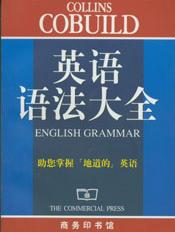牛津实用英语语法-第30部分
按键盘上方向键 ← 或 → 可快速上下翻页,按键盘上的 Enter 键可回到本书目录页,按键盘上方向键 ↑ 可回到本页顶部!
————未阅读完?加入书签已便下次继续阅读!
There must be no doubt about this.
这一点不能含糊。
There may be a letter for me.
大概有我一封信。
或与seem+be,appear+be连用:
There seems to be something wrong here.
这儿好像有点不大对劲。
F 以上这么用的there通常不重读。
注意不要将有以上用法的there与当做副词用并带有重音的there搞混:
′There’s a man I want to see.
那就是我想见的人。(他站在门口。)
请比较:
′There’s a man I want to see.
我要见个人。(这个人存在。)
?
'Amber demo'
117 it is和there is的比较
?
关于it is的用法参见第67节。
以下这些例子有助于防止把这两种形式混淆:
A it is+形容词;there is+名词:
It is foggy./There is a fog.
有雾。
It was very wet./There was a lot of rain.
很湿。/下了不少雨。
It won’t be very sunny./There won’t be much sun.
天气不会很晴朗。
B it is与there is都可以表示时间和距离:
It is a long way to York.
到约克路很远。
There is a long way still to go.
还有很长的路要走。(我们还有好多英里的路程。)It is time to go home.
该回家了。(我们一般是6点回家而现在6点了。)
There is time for us to go home and e back here again before the filmstarts.
在电影开演之前我们有时间先回家一趟再回到这里。(还有足够的时间)
C there is+名词/代词和用于识别人或物的 it is+名词/代词的比较:
There is someone at the door.I think it’s the man to read the meters.
门口有个人。我想他是来抄(水、电等)表的。
There is a key here.Is it the key of the safe?
这里有一把钥匙。是开保险箱的吗?
D 用于分裂句的it is(参见第67节D)以及there is的比较:
It is the grandmother who makes the decisions.
做出决定的是老奶奶。(是老奶奶而不是家里的其他成员)
…and there’s the grandmother,who lives in the granny-flat.
……还有老奶奶,住在专用套房里的那位。(有老奶奶其人)
?
'Amber demo'
have作助动词?
?
'Amber demo'
118 构成各种时态的形式及用法
?
A 形式
主要变化形式:have,had,had
动名词/现在分词:having
现在时:
==================================
ABC Amber CHM Converter v6。22
Trial version
==================================
否定式的另一种缩略形式(主要用于完成时): I’ve not,
you’ve not,he’s not等
否定疑问式:have I not?/haven’t I? have you not? haven’t you?hashe not?/hasn’t he?等
==================================
ABC Amber CHM Converter v6。22
Trial version
==================================
have的其他时态变化规则,与普通动词的相同。
B 用于构成时态
have与过去分词连用,构成以下时态:
现在完成时:I have worked.
过去完成时:I had worked.
将来完成时:I will/shall have worked.
条件完成时:I would/should have worked.
?
'Amber demo'
119 have+宾语+过去分词
?
A想对 I employed someone to do something for me(我雇用了某人为我做事)这一类句子作更简洁的表达时,可以用这种结构:即不说 I employed someone to clean my car,而说 I had my car cleaned(我叫人擦了车子)。又如不说 I got a man to sweep my chimneys(这里got= paid/persuaded等),而说I had my chimneys swept(我叫人通了烟囱)。
注意必须用have+宾语+过去分词,否则意思就变了:
He had his hair cut.
他理了发。相当于:
He employed someone to do it.
他雇人理发。
但是:
He had cut his hair.(过去完成时)
他自己理了发。(在说话之前的某个时刻他自己给自己理了发)
have这样用时,其否定式和疑问式的现在时和过去时都要用
do来构成:
…Do you have your windows cleaned evny month?
…I don’t have them cleaned;I clean them myself.
…你每月都要叫人擦窗户吗?
…我不叫别人擦,我自己擦。
He was talking about having central heating put in.Did he have it put in in the end?
他那会儿总说要找人装暖气。到底装上了没有?
这种结构可以用于进行时态:
I can’t ask you to dinner this week as I am having my house painted at the moment.
这一周我不能请你来吃饭了,因为现在我正让人刷房子呢。
While I was having my hair done the police towed away my car.
我(让人)做头发时,警察把我的汽车拖走了。
The house is too small and he is having a room built on.
房子太小了,他正叫人添盖一个房间。
get能够像have一样用于上述句中,但更口语化。句中提到完成动作的那个人的时候,也可以用get:
She got him to dig away the snow.
她让他把雪挖走。(她雇/说服他……)
(have与不带to的不定式连用也能起同样的作用,如She hadhim dig away the snow。但在英国英语中get结构要常用得多。)
B have+宾语+过去分词结构在口语中可以用来代替常表示意外或不幸遭遇的被动态动词。如 His fruit was stolen before hehad a chance to pick it(他树上的果子还没来得及摘就被人偷掉了)可由He had his fruit stolen before he had a chance topick it来代替。Two of his teeth were knoceked out in the fight(他的两颗牙在打架中被打掉了)可由He had two of his teethknocked out…来代替。
在本节A中,可以看到主语是命令别人做某事的人,而在这儿,主语则是承受行为结果的人。这里主语也可以是物:
The houses had their roofs ripped off by the gale.
房子被狂风掀掉了屋顶。
这里也可以用get代替have:
The cat got her tail singed through sitting too near the fire.
猫坐得太靠近炉火,尾巴上的毛被烤焦了。
?
'Amber demo'
120 had better+不带to的不定式
牋
这里had是指不真实的过去;其含义是现在或将来时:
I had/I’d better ring him at once/tomorrow.
我最好还是现在/明天就给他打电话。
其否定式是在better之后加上not:
You had better not miss the last bus.
你最好不要误了最后一班公共汽车。(误了这趟车是不明智的或者我劝你/提醒你不要误了这趟车。)
had通常在代词后用缩略形式,在口语中有时轻读甚至弱读到将近听不到的地步。
had better通常不用于普通的疑问式,但有时用于否定疑问式,作为一种劝告句式:
Hadn’t you better ask him first?
你先问一下他不更好吗?相当于:
Wouldn’t it be a good thing to ask him first?
是不是先问一下他比较好?
you had better是一种很有用的劝告句式:
You had better fly.
你最好是乘飞机走。(我劝你乘飞机走。)
在间接引语中,had better与第一、第三人称连用时保持不变,与第二人称连用时可以保持不变,或者转述为advise+宾语+不定式:
He said,‘I had better hurry.’
他说:“我最好快一点。”相当于:
He said(that)he’d better hurry.
他说他最好快一点。
He said,‘Ann had better hurry.’
他说:“安最好快一点。”相当于:
He said(that)Ann had better hurry.
他说安最好快一点。
He said,‘You’d better hurry.
他说:“你最好快一点。”相当于:
He said(that) I’d better hurry.
他说我最好快一点。
He advised me to hurry.
他劝我快一点。
?
'Amber demo'
121 have+宾语+现在分词
?
A 这种说法常常和表示将来某段时间的短语连用:
I’ll have you driving in three days.
我将使你在三天之内学会开车。(由于我的努力,过三天你就学会开汽车了。)
但也可以用于过去时和现在时:
He had them all dancing.
他使得他们全都跳起舞来。(他教/说服他们都跳舞。)
I have them all talking to each other.
我使得他们全都相互交谈起来。(我鼓励/说服他们都相互交谈起来。)
这种结构也可以用于疑问式:
Will you really have her driving in three days?
你真的能在三天之内就教会她开车吗?
但通常不用于否定式。
B If you give all-night parties you’ll have the neighbours plaining.
你如果举办通宵晚会,会搞得邻居们都抱怨你的。(邻居们将抱怨你的。)
If film-stars put their numbers in telephone books they’d have everyone ring them up.
电影明星们如果把他们的电话号码列入电话簿,就会招致所有的人给他们打电话。(人人都会/不断地给他们打电话)。
在第一例句中you’ll have表达了这样的意思:“你将遭到这样的事”。同样,在第二句中they’d have含有这样的意思:“他们会遭到这样的事”。
If you don’t put a fence round your garden you’ll have people walking inand stealing your fruit.
如果你不把你的果园用篱笆围起来,人们会走进来偷摘果子。(人们将走进来/不断进来偷摘果子,即:你要遭到这类事。)
这种结构可以用于疑问句或否定句中:
When they move that bus stop you won’t have people sitting on your steps waiting for the bus any more.
那个公共汽车站迁走之后,再不会有人坐在你的台阶上等公共汽车了。
这种结构主要用于对have的主语来说是不愉快的行为,就如以上的例句所表示的那样。但也可用在并非不愉快的场合:
When he became famous,he had people stopping him in the street and asking for his autograph.相当于:
When he became famous,people stopped him in the street and asked forhis autograph.
他成名之后,常有人在街上拦住他要他签名。
但I won’t have+宾语+现在分词通常意指“我不能允许或我不允许此事”:
I won’t have him sitting down to dinner in his overalls.I make him change them.
我不允许他穿着工作服就坐下吃饭。我要他换衣服。(我不许他坐下……)
这种用法只限于第一人称。
(关于have用于表达责任、义务等意思,参见第十四章。)
?
'Amber demo'
have作普通动词?






